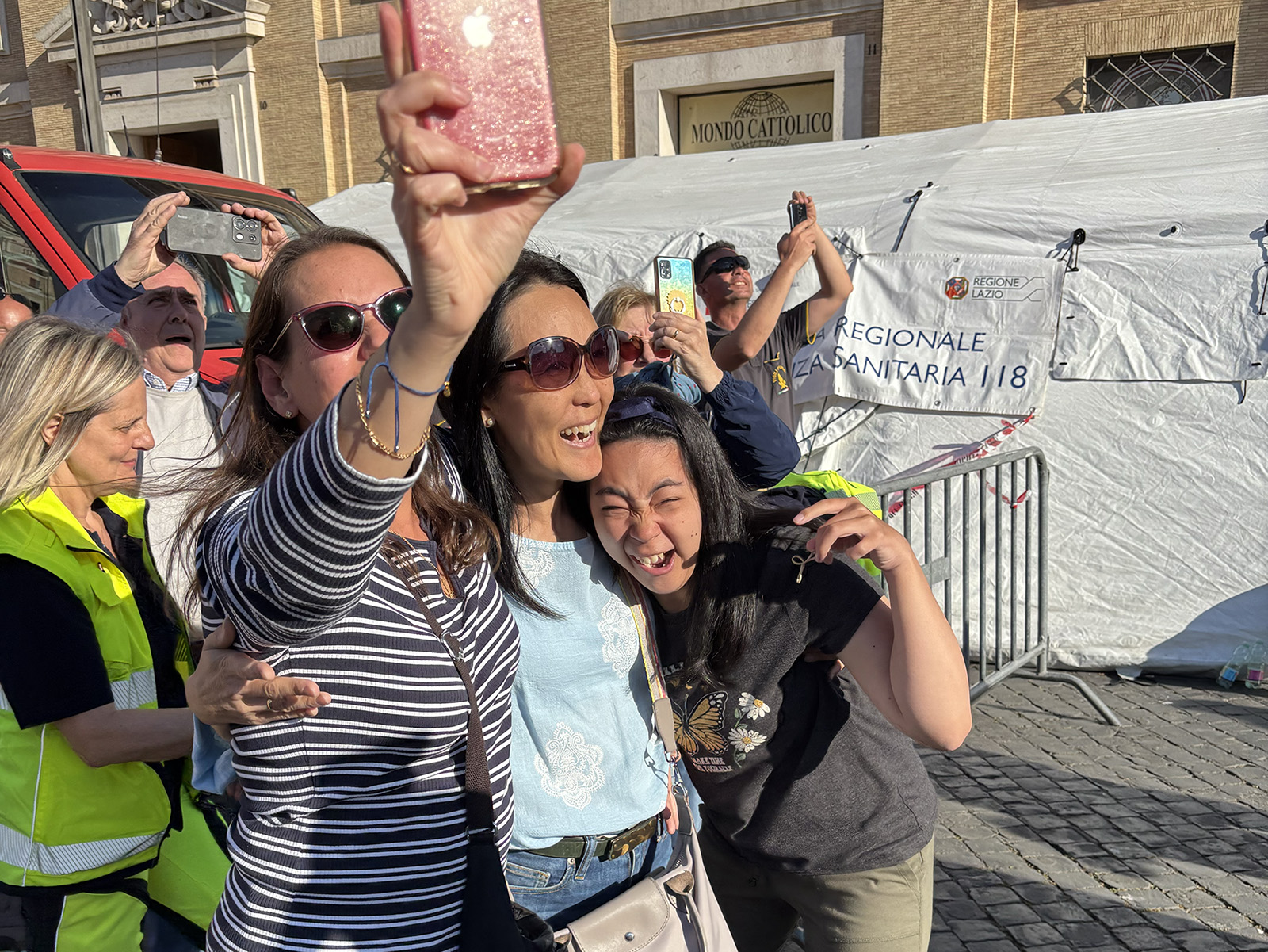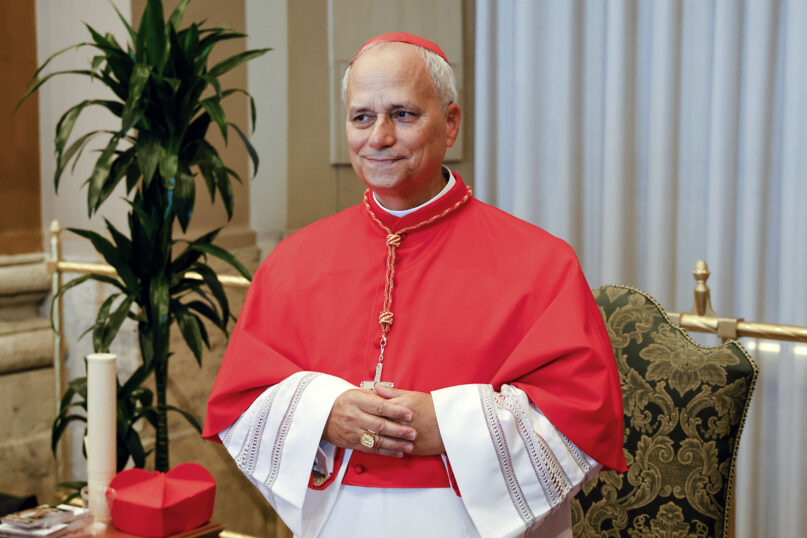
(RNS) — Yes, our new pope said something about women deacons. He said it is under study.
Anyone looking for a quick answer from Pope Leo XIV, a canon lawyer, former diocesan bishop in Peru, former head of the Vatican department responsible for choosing bishops and member of seven other Vatican dicasteries, a mathematics major at Villanova University and Chicago White Sox fan, will have to wait.
He is very much a synodal man.
On Oct. 25, 2023, at a press conference during the first meeting of the Synod on Synodality in Rome, then-Cardinal Robert Prevost suggested the synodal process he had experienced in Peru could be conducted by the whole church. The important thing, he said, was learning how to be synodal — learning to listen and learning to respond in a way that moves the discussion and the church forward.
The task, in Peru, was to find ways to work together in search of the same kind of church the world needs today: One that reaches out to the poor, the neediest and those on the margins. The essence of synodality, the now-Pope Leo noted, was moving forward in communion, common life, trust and dialogue, always looking for truth.
That is what the synod was about. That is what the Synod Office hopes for with its proposed three-year continuation of the process.

Participants attend a session of the 16th General Assembly of the Synod of Bishops at the Paul VI Hall at the Vatican, Oct. 7, 2024. (AP Photo/Andrew Medichini)
At the end of the press conference that October afternoon, near the end of the 2023 general meeting of synod members in Rome, he responded to a reporter’s question about women in governance and women’s ordination as priests or deacons.
To be clear, there are three separate levels to that question: 1) governance; 2) women priests; 3) women deacons.
At the time, no women had been promoted to the most senior offices in the curia. One woman, the future pope noted, had recently been appointed as undersecretary, or second-in-command, of the Vatican’s dicastery for religious life, the office responsible for religious institutes and orders of men and of women. The reporters in the room knew that her position would ordinarily be filled by a priest, who by dint of office would soon be named an archbishop.
But, Cardinal Prevost said, the “very significant and long tradition of the church” about women’s ordination to the priesthood is well known. He did not indicate it would or should change.
Then he addressed the question of women deacons. Even so, he said, “two commissions on women deacons indicate there is certainly openness to giving that question consideration.”
So, that was that. Yes, to women in governance, no to women priests and maybe (it is under study) to women deacons.

FILE – Cardinal Robert Francis Prevost, prefect of the Dicastery for Bishops, stands for a portrait at the end of the consistory where Pope Francis elevated 21 new cardinals in St. Peter’s Square at the Vatican, Sept. 30, 2023. (AP Photo/Riccardo De Luca, File)
Next, his answer took a turn. Nearly repeating something Pope Francis said years earlier, he said, “Clericalizing women does not necessarily solve a problem.”
What problem?
He explained, “Perhaps we need to look at a new understanding or different understanding of leadership, power, authority, and service — above all service — in the church from the different perspectives that can be brought to the life of the church, by women and men, so there are conversations going on; there is an official study going on.”
So, what does he think about women deacons?
He must have read the recent document, published in Spanish last month, now under discussion in the Amazon region, presenting details of the proposed Amazonian Rite. The document emphasizes the need for more people — male and female — to have more roles in the church and asks for the priestly ordination of married men and for the diaconal ordination of women.
Wary of clericalism, the document stresses the communal nature of church. So, it recommends mature faith communities with ministry teams, including women deacons, alongside other forms of ministries for men and for women.
What will happen?
This is not the fixed 1919 Chicago White Sox World Series games. No one is betting, and no one is cheating. The question of women deacons is open for the whole church to consider.
The pope said so.
